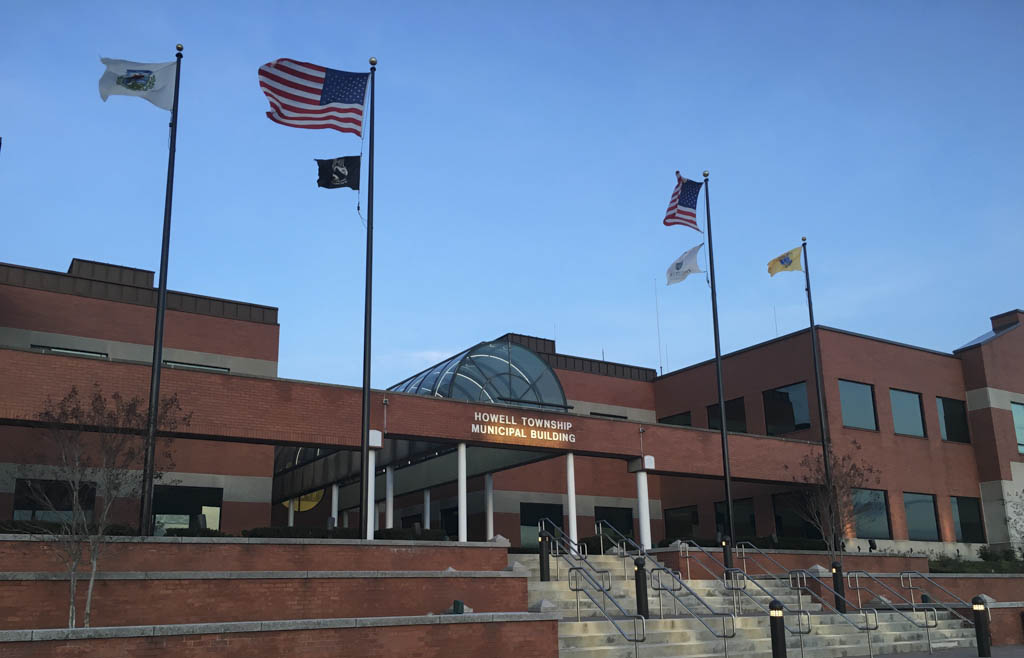By Michael Benavides
Staff Writer
HOWELL – Township Council members are seeking guidance from the state in order to determine the next steps in resolving the 2017 municipal budget situation.
Howell’s $47.9 million budget was the subject of a public hearing during the April 18 council meeting and could have been adopted by council members that evening.
However, after residents finished speaking about increasing municipal taxes, the council took no action on this year’s spending plan.
Now, officials are trying to determine what comes next.
Chief Financial Officer Louis Palazzo said, “When it was time for a vote to be taken on the budget, there was a motion by Councilwoman Evelyn O’Donnell not to approve the budget. That motion was not seconded … Therefore, since no motion was entertained for any action on the budget, the budget as introduced was defeated.”
Palazzo said he contacted the state’s Local Government Services Division to see how to proceed.
“I confirmed that the township will not have to reintroduce the municipal budget as a result of its defeat. From this point, the township will follow the state statute in reference to amending the budget from how it was introduced and how the defeated version will be handled,” Palazzo said.
On April 21, Mayor Theresa Berger said the governing body was attempting to set up a meeting to discuss possible changes to the proposed budget.
The 2017 budget totaling $47.91 million was proposed to be supported by a local tax levy of $26.59 million to be paid by Howell’s residential and commercial property owners.
The 2016 budget totaled $46.94 million and relied on the collection of $25.4 million in local property taxes.
Residents objected to paying $1.19 million more in municipal taxes this year.
According to Howell officials, in 2016, the owner of a home assessed at the township average of $318,169 paid about $1,269 in municipal taxes.
In 2017, the average home is assessed at $332,528 and municipal taxes would have increased to about $1,326 – an increase of $57 – under the budget that was not approved.
Berger said her proposed plan to avoid a tax increase would have been to cut the budget of every municipal department.
“The necessary cuts to maintain a zero increase in taxes for the township portion (of the property tax bill) is $1.1 million. I proposed cuts to departments across the board which did not include decreasing any staff,” she said.
During public comment, resident Les Spindel said municipal taxes have gone up 7.8 percent over a two-year period.
“The reason I am here and I believe the reason many other people are here is the concern over the budget and what it is going to be doing to taxpayers,” Spindel said. “Municipal taxes have increased 7.8 percent over a two-year period on an average home in Howell, (which is) unconscionable and unacceptable.”
Another resident said he may be forced to leave Howell if taxes keep increasing. He said he lives on a fixed income and does not know if he will be able to remain in New Jersey. He urged the council members “to put your noses to the grindstone and keep these taxes under control.”
Another resident told the elected officials that “We are your bosses here. We are saying flat spending. Figure out a way to do it.” Schreyer said.
Councilman Robert Walsh asked Palazzo how much would need to be cut from the proposed budget in order to provide no tax hike.
Palazzo said, “Municipal spending increased in this budget $913,000. In order to have flat spending you would need to cut that amount.”
Walsh said, “I do not exactly know the answer. If you knew some of (what was) asked of us when we started this budget process eight or nine months ago … they wanted us to raise the budget (by) $3 million, $4 million, $5 million. The managers, the department heads, cut many things. The governing body has cut many things. I am willing to listen to anything.
“Last year we discussed moving our police dispatch services from the township to Monmouth County. This room was filled with 400 people saying not to do it and it would have saved $600,000. If I asked the people in this room today if they wanted to save $600,000, I bet I would get a resounding yes,” Walsh said.

